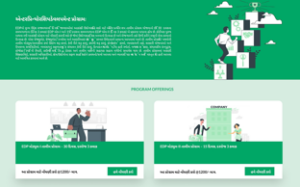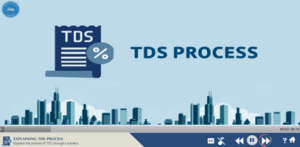Now more than ever, doctors are beginning to have a tough job. Given the state of healthcare, providers must figure out how to manage the confusion arising from challenges such as being a tech-savvy doctor, new government mandates, while at the same time treating a patient population increasingly saddled with chronic disease and coordinating care and communication among multiple providers. Wikipedia says doctors are “A medical practitioner, including Physician, Surgeon.” But we all know it’s just not limited to those areas. There are Pediatricians, Dermatologists, Endocrinologists, Gastroenterologists, Nephrologists, Urologists and various more. Recent technologies and learning industry have made it possible to curate digital learning programs for doctors that can be accessed on their job or anywhere and anytime helping them with the skills required to overcome the challenges.

Doctors today are caught on the back foot. Read on for a look at some of the top challenges doctors face:
- Administrative Work- Starting with the basics, if and when the doctors are not linked between the ER and the wards, they are more likely to be found at their desk behind mountains of paperwork. The average doctor spends around 8.7 hours per week or roughly 16.1% of their average weekly duties purely on administration. It’s argued that the time can be better spent on the patients themselves.
- Stress management– As known to the world the doctor’s profession can be considered as the most stressful one. As with it comes the responsibility of life of the people. Doctors experience high levels of stress and may have fewer support resources in place. The research claimed, 82.7% of doctors in their work are stressed.
- Non-compliant patients– Often enough, doctors have to attend to a patient who completely denies the proposed treatment/advice they have been given. Being persuasive in such situations is a big challenge for the doctors who are educated to treat the ill but not to persuade effective treatment.
- Treating pro-active patients– Whilst doctors may get patients who will be non-compliant, they’ll also get some that are entirely sure of their symptoms, thanks to the aid of a quick Google search. Whilst the help is greatly appreciated, doctors do know what’s best. But this pro-active and knowledgeable attitude of patients should be respected because it shows that they are highly-concerned.
- Fear of failure (legal troubles) – Especially in emergency cases where patients might have low chances of survival, doctors have to take a chance and conduct medical procedures that might not yield a positive outcome. In such cases, if the doctor fears being implicated due to a negative medical result, they might not even try and make an effort to treat patients. Research says 13.7% of doctors are afraid of criminal prosecution.
- Emotional strength- Dealing with deaths, traumatizing over patient’s chronic diseases and treating their loved ones arises emotional instability. However, doctors learn to block emotion and they practice an introvert’s behaviour. It is observed that in the medical profession crying is a sign of weakness as the doctor feels uncomfortable discussing the death of their patients and severe diseases their relatives. This often reflects an inability to process pain, distress, and death as emotional processes in one’s own life and understand this in the lives of the relatives.
Having blind faith in their doctor is an outdated emotion for patients as there are too many umpires watching and the rescuer- Google. These challenges may seem daunting, but they also present opportunities for doctors to improve patient care through customized digital learning of Emotional Intelligence and mindfulness. Wondering how is it possible to subdue these challenges through a digital learning program? We will be discussing it in the upcoming article. Read More.. https://avighnainfosys.com/cognigix/allblogs/top-6-skills-required-for-doctors/






